RELATE: Respectful relationships program - Stage 3
Year level: 9 or 10
Description
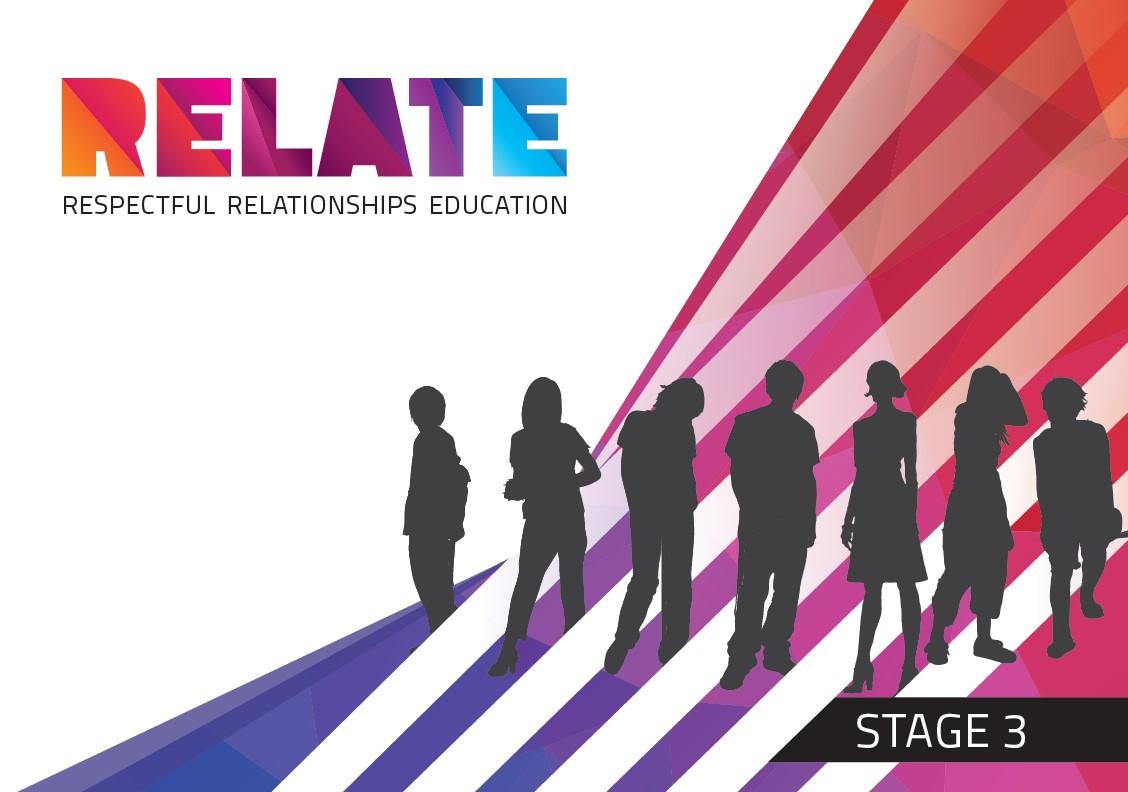
A one term respectful relationship program consisting of 8 scaffolded sessions covering gender stereotypes and expectations, respectful relationship qualities, non-consensual image sharing, sexual assault, consent, disrespectful and unethical behaviours, decision making frameworks, opinion and values in romantic relationships.
Each stage of RELATE can be delivered in isolation but is best delivered sequentially.
Stage 3 is suggested for Year 9 or 10 but may be suitable for lower or higher year groups depending on student demographics.
Learning focus
RELATE has been designed to improve students' knowledge, attitudes, skills and behaviours to recognise and engage in respectful relationships. This includes increased:
-
awareness of, and respect for, diversity
-
understanding of the impact of gender expectations and social norms on relationships and sexual health
-
understanding of, and skills for, ethical behaviour in the context of relationships
-
skills to establish and maintain positive, equitable and respectful relationships
-
capacity to identify and address disrespectful behaviour
-
digital literacy skills
-
critical analysis skills
- knowledge of, and ability to access, a range of support people and services.
It provides opportunities for young people to explore attitudes and peer, gender, social and cultural influences that impact on behaviour in relationships; identify perceived and actual peer norms and rectify incorrect perceptions; examine their expectations and the value they place on different behaviours within relationships as well as develop skills and confidence to carry out desired behaviours (self-efficacy).
Gender analysis is core to the approach of the RELATE program. Gender inequality and gendered expectations in relationships are understood as key issues underpinning the occurrence of relationship violence and poor sexual health outcomes. Gender is explored by considering individuals within the context of relationships, communities and society. This is extended using a human rights framework, that considers not only gender but includes race, ethnicity, class, sexual orientation, disability, religion and culture.
Key understandings
Session 1: Setting the scene - Establishing group agreement
Purpose: To provide students with an opportunity to explore and discuss factors that make for a safe and supportive learning environment for all.
![]() I already have some knowledge about respectful relationships, gender, communicating and sexting but I can always learn more.
I already have some knowledge about respectful relationships, gender, communicating and sexting but I can always learn more.
![]() People have different values and attitudes and these come from my experiences, my family, my peers, culture and community.
People have different values and attitudes and these come from my experiences, my family, my peers, culture and community.
Session 2: What do you think?
Purpose: To recognise stereotypes as expressed and demonstrated in some romantic relationships
To identify myths and misconceptions about gender Stenotypes.
To apply knowledge of consent to scenarios.
![]() Consent is a really important consideration in a respectful relationship. In order to give consent for sex everyone must be Ready, willing and able.
Consent is a really important consideration in a respectful relationship. In order to give consent for sex everyone must be Ready, willing and able.
Session 3: Different points of view
Purpose: To identify different viewpoints and perspectives of the same event.
To understand the need for clear, assertive and respectful communication.
To identify clear, assertive and respective communication.
![]() I feel confident to communicate my consent clearly. I understand the importance of checking that I have consent from my partner.
I feel confident to communicate my consent clearly. I understand the importance of checking that I have consent from my partner.
Session 4: Trusted moments
Purpose: To identify disrespectful and unethical behaviours in a variety of relationships.
To view and discuss the DVD Trusted moments.
Session 5: What really happened?
Purpose: To apply a framework for considering the safety and respect of people in a risky situation.
![]() There are 4 questions that I need to think about when making decisions to keep myself safe.
There are 4 questions that I need to think about when making decisions to keep myself safe.
Session 6: What do I know?
Purpose: To review and apply concepts of: gender and identity; respectful relationships; effective communication.
To understand that different decisions can be made to change the outcome of situation.
To be aware of the Sexual Assault Research Centre (SARC) and its services.
![]() There are always key moments when different decisions can b made that can result in a safer outcome. If something goes wrong for me or my friend I know I can get help from SARC as well as other places.
There are always key moments when different decisions can b made that can result in a safer outcome. If something goes wrong for me or my friend I know I can get help from SARC as well as other places.
Session 7: Relationships - a rollercoaster ride
Purpose: To identify some of the positives and negatives of romantic relationships.
To consider how to manage conflict in romantic relationships in a respectful manner.
![]() Having romantic/intimate/sexual relationships is a normal part of growing older. Like any relationship, they involve risk taking. There are decisions and behaviours people can make to feel safe, respected and respectful.
Having romantic/intimate/sexual relationships is a normal part of growing older. Like any relationship, they involve risk taking. There are decisions and behaviours people can make to feel safe, respected and respectful.
Session 8: So what do you think?
Purpose: To identify a range of opinions and values about romantic relationships.
To demonstrate respect for diversity.
![]() It is important that people in romantic relationships are respectful of themselves and each other.
It is important that people in romantic relationships are respectful of themselves and each other.
Materials
There are no listed materials.
General capabilities
No General Capabilities values have been selected.
No Australian Curriculum values have been selected.
Blooms revised taxonomy
No Blooms values have been selected.
Inquiry learning phase
No Inquiry Learning phase values have been selected.
Learning activities
Sample session pages and activity sheets:
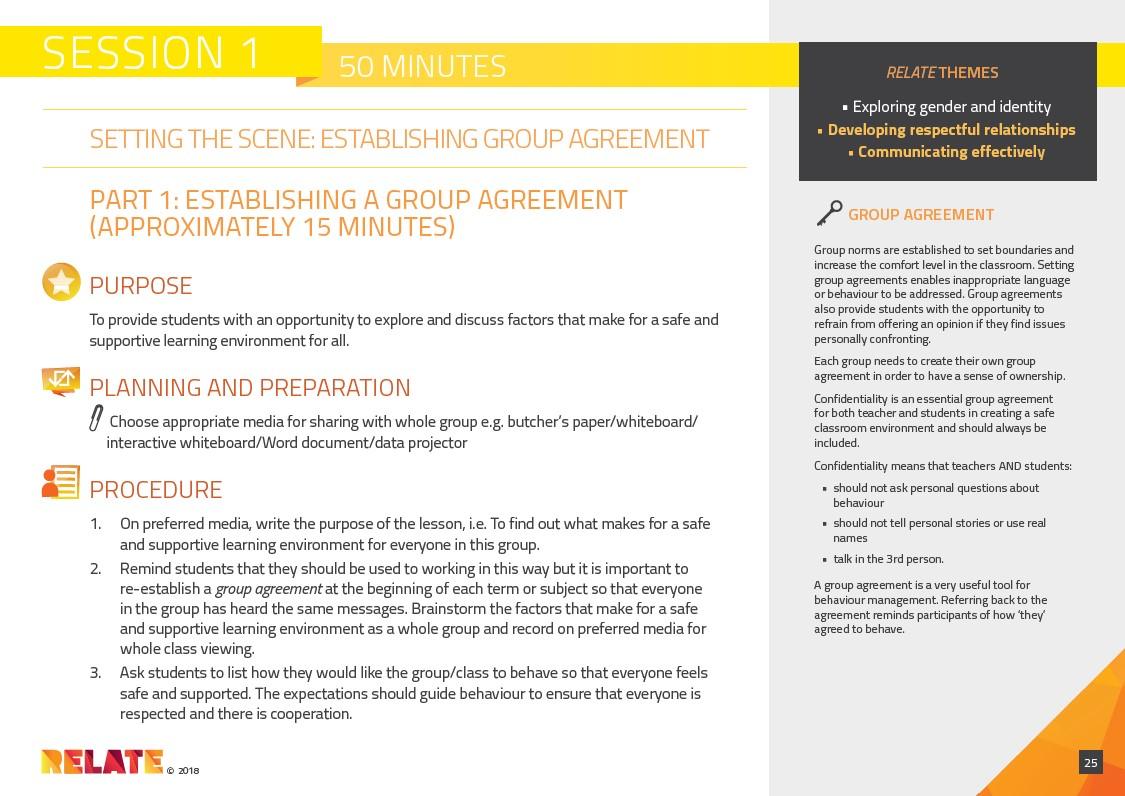
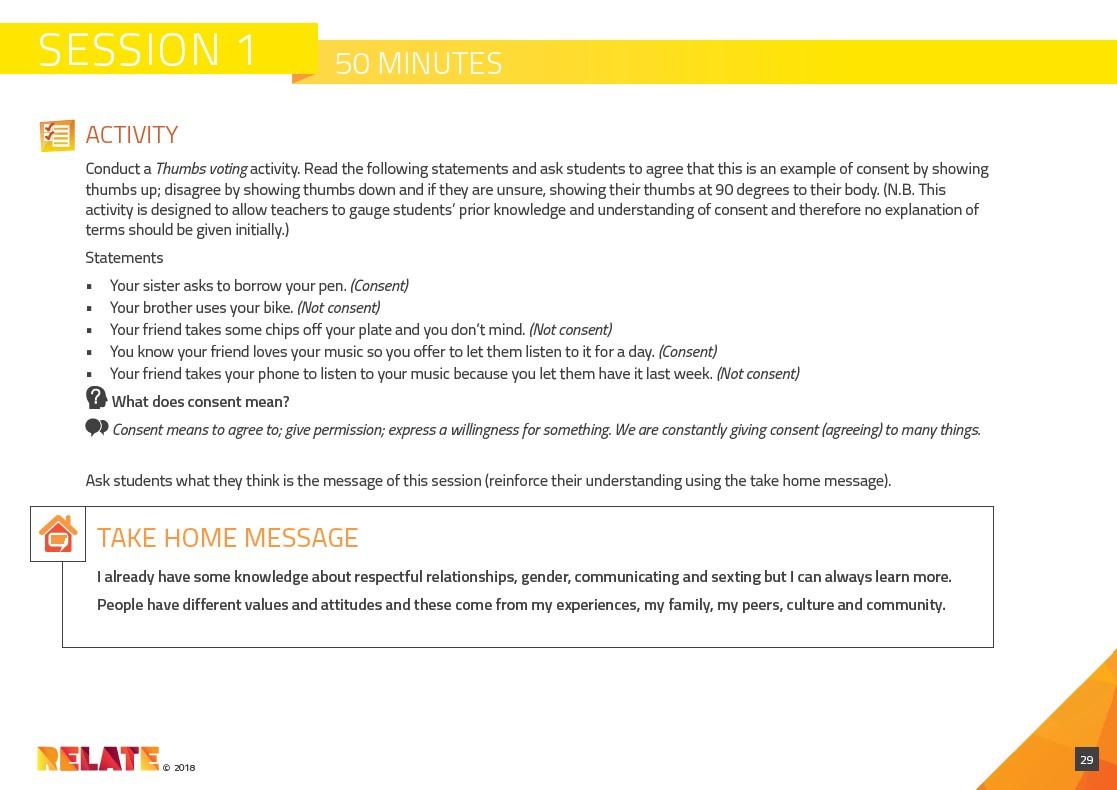
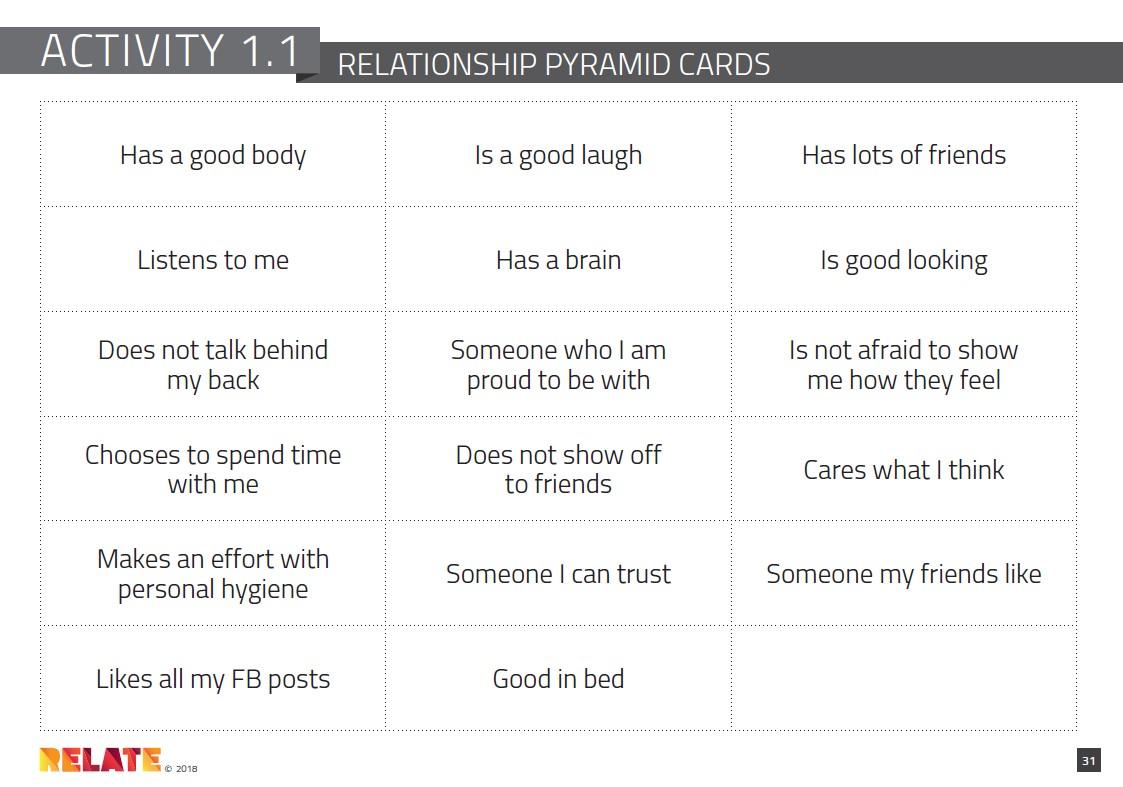
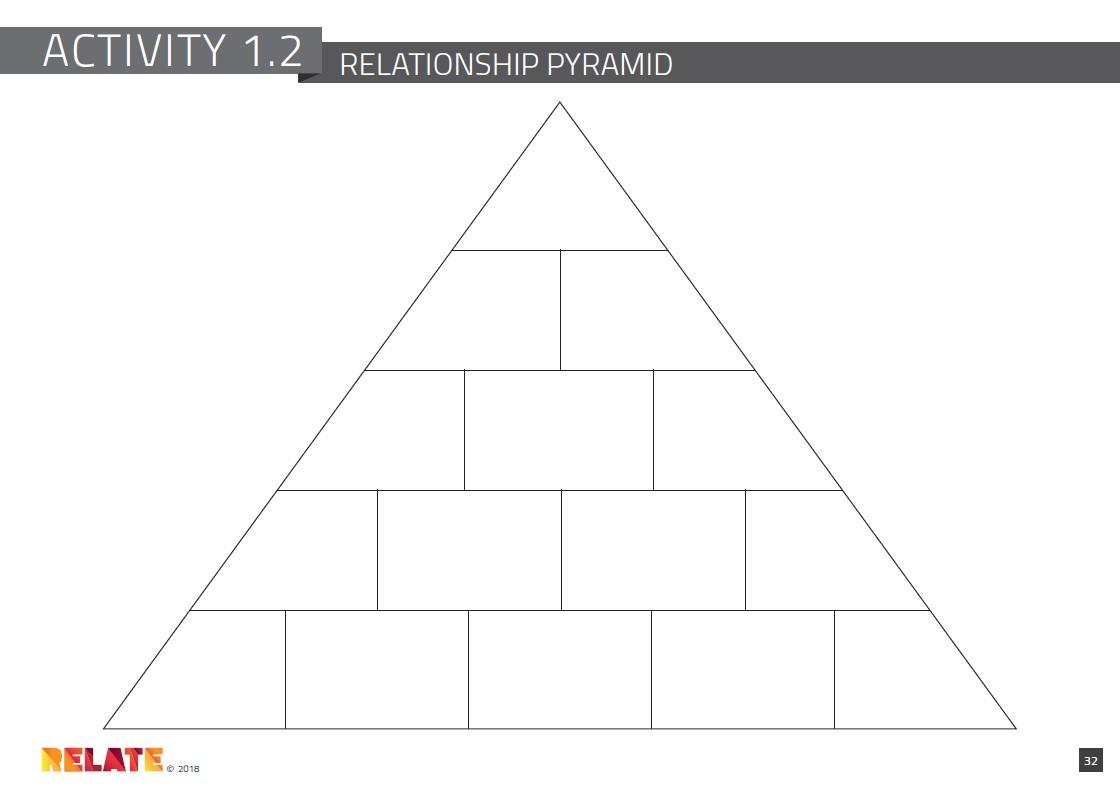
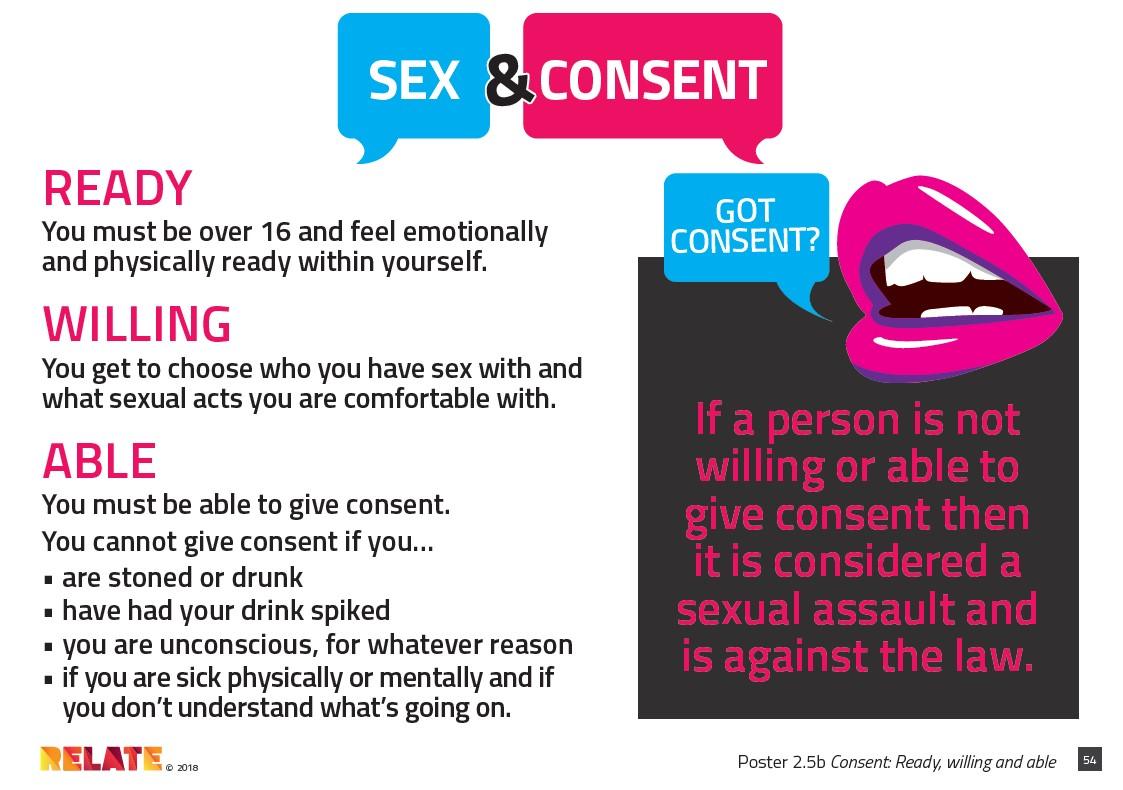
See RELATE: Stage 3 full program (16MB) for the entire package of lesson plans including lists of materials required for each session, posters, activity sheets and teaching notes.
Sexual Health Quarters (SHQ) conducted the original development of RELATE (1st and 2nd edition). SHQ has had no involvement with any subsequent updates or editions of RELATE.